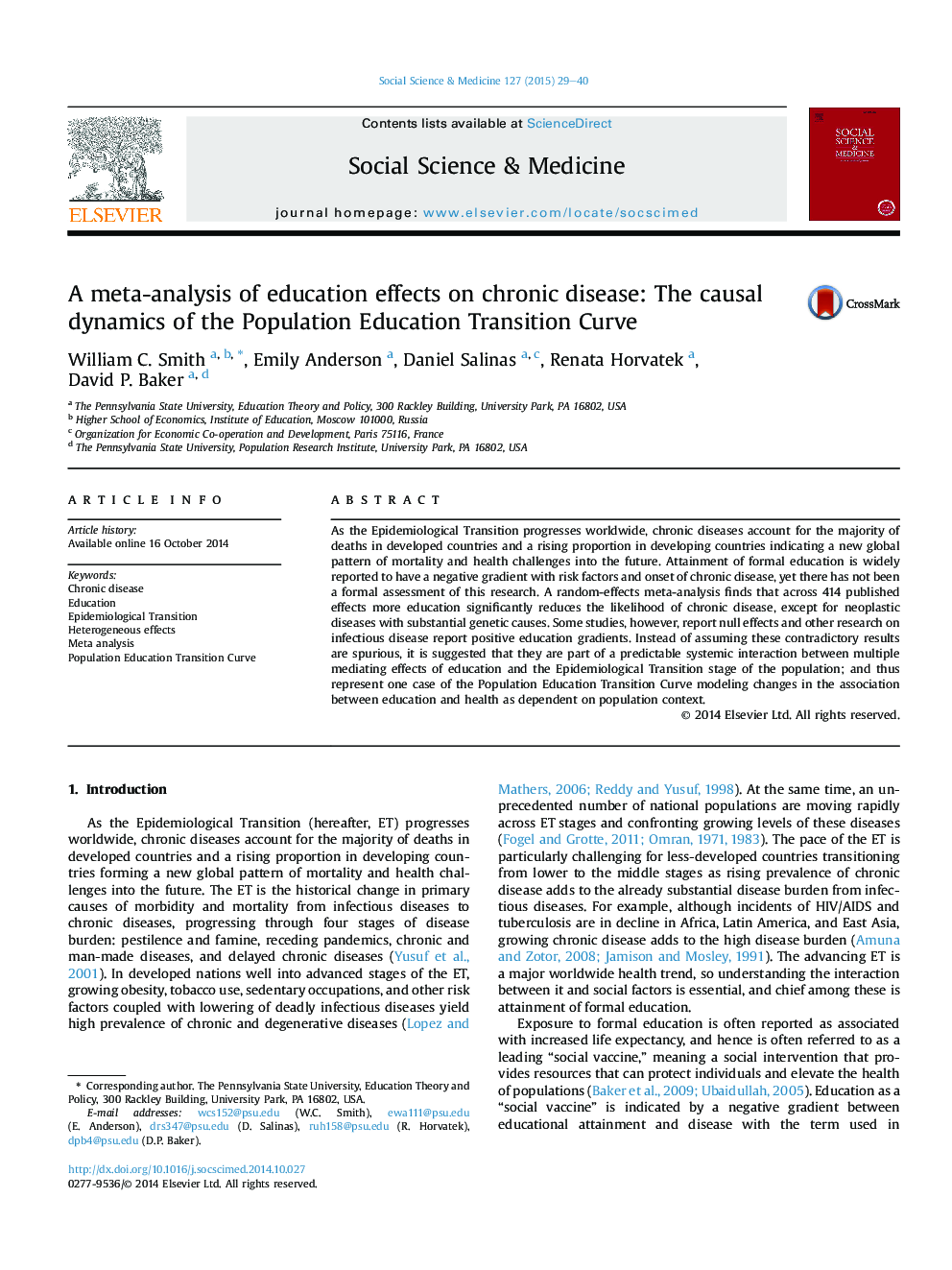| Article ID | Journal | Published Year | Pages | File Type |
|---|---|---|---|---|
| 7333241 | Social Science & Medicine | 2015 | 12 Pages |
Abstract
As the Epidemiological Transition progresses worldwide, chronic diseases account for the majority of deaths in developed countries and a rising proportion in developing countries indicating a new global pattern of mortality and health challenges into the future. Attainment of formal education is widely reported to have a negative gradient with risk factors and onset of chronic disease, yet there has not been a formal assessment of this research. A random-effects meta-analysis finds that across 414 published effects more education significantly reduces the likelihood of chronic disease, except for neoplastic diseases with substantial genetic causes. Some studies, however, report null effects and other research on infectious disease report positive education gradients. Instead of assuming these contradictory results are spurious, it is suggested that they are part of a predictable systemic interaction between multiple mediating effects of education and the Epidemiological Transition stage of the population; and thus represent one case of the Population Education Transition Curve modeling changes in the association between education and health as dependent on population context.
Related Topics
Health Sciences
Medicine and Dentistry
Public Health and Health Policy
Authors
William C. Smith, Emily Anderson, Daniel Salinas, Renata Horvatek, David P. Baker,
